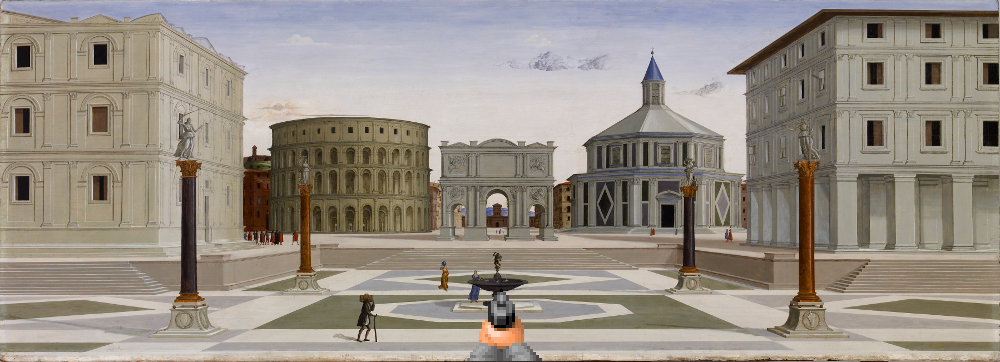
Posted by: Em | JAN-02-2019

I want to cling to a particular definition of this word but in practice: (Tommy Wiseau voice) what can ya do. “Modern” is a term that can basically be anything and be used for anything, and it especially comes in handy when you need a slightly elevated way to say “current/recent/contemporary” especially in reference to a medium as fraught in terms of cultural and artistic status as VIDEOGAMES. In the interest of exploring more grounded definitions for what we could mean when we say "modern videogames," I have three proposals.
Modern videogames! In a sense videogames are a fundamentally modern form. So is the novel, which videogames are always positioned as improving on/leaving behind. There’s the idea of the modern being some sort of coalescence of enlightenment ideas about the self and his internal life alongside new ideas of rationally systematizing and understanding the world as experienced, through things like geometric perspective, the scientific method, taxonomies and so on. In this case the focus on an abstract “player” who does “gameplay,” the obsession with “player agency” (within what is, essentially, a walled garden of already-set recombinatorial states) and the colonial/extractive logic of most videogame narratives (so far as they tell you what to do) all make sense.
High Modernism in the visual arts is a subcategory of these trends that was simultaneously about the original work of art (usually a large scale abstract canvas) as this unique psychological imprint of the irreducible male genius artist, but also a paring down of form and representation, becoming singular in another way. One of these pursuits seems self-interested and the other kind of sterile/objective… but in the end they are both about some rational justification for an object which seems to become more and more ungrounded in social life… ie, the Ghent Altarpiece knew what it was and what it needed to be. A painting is essentially 2D so it must be the MOST 2D to extend the life of the form of painting beyond the threat of obsolescence via other means of producing images and also the emergence of other uses for images. Territorialism around videogames, "art games," and the construction of the remit of game studies as a discipline also often resorts to similar ideas.
But does any of this matter now? We’re post-postmodern in that the idea of being “postmodern” has been floated leading us into what is labeled a “contemporary” situation that drags on. Mark Fisher writes in the introduction to Ghosts of My Life that the task of Modernist forms was to constantly rework themselves to be “adequate” to the present moment; naturally postmodernism emerged alongside neoliberalism and capitalist realism to argue that what is adequate is to simply repeat, most often the commercial and popular, with varying degrees of irony. IMO, it’s important to see postmodernism not as a break with modernism but a sort of extension or mutation of it, filling the same purpose as a perversion of capitalism where its excesses are cushioned by government rescue. While everyone involved cynically argues “there is no alternative,” the obscene commodity phallus of the culturally/CIA-reappropriated Pollock mural just as easily becomes interchangeable Factory-made celebrity pornography-cum-balloon dog racket where you finally have to admit it kinda sucks but it’s the only game in town.
Videogames can be modern in several ways and these are often ways that make fundamentally conservative appeals to form and cultural legitimacy. Yes, Modernist abstract painting was labeled Avant-Garde in its time, it was also heavily funded and promoted by the United States government to squash collectivist forms of thought and expression worldwide. So we’re like at least 80 years too late for any of these approaches to “do” anything interesting, but here goes: